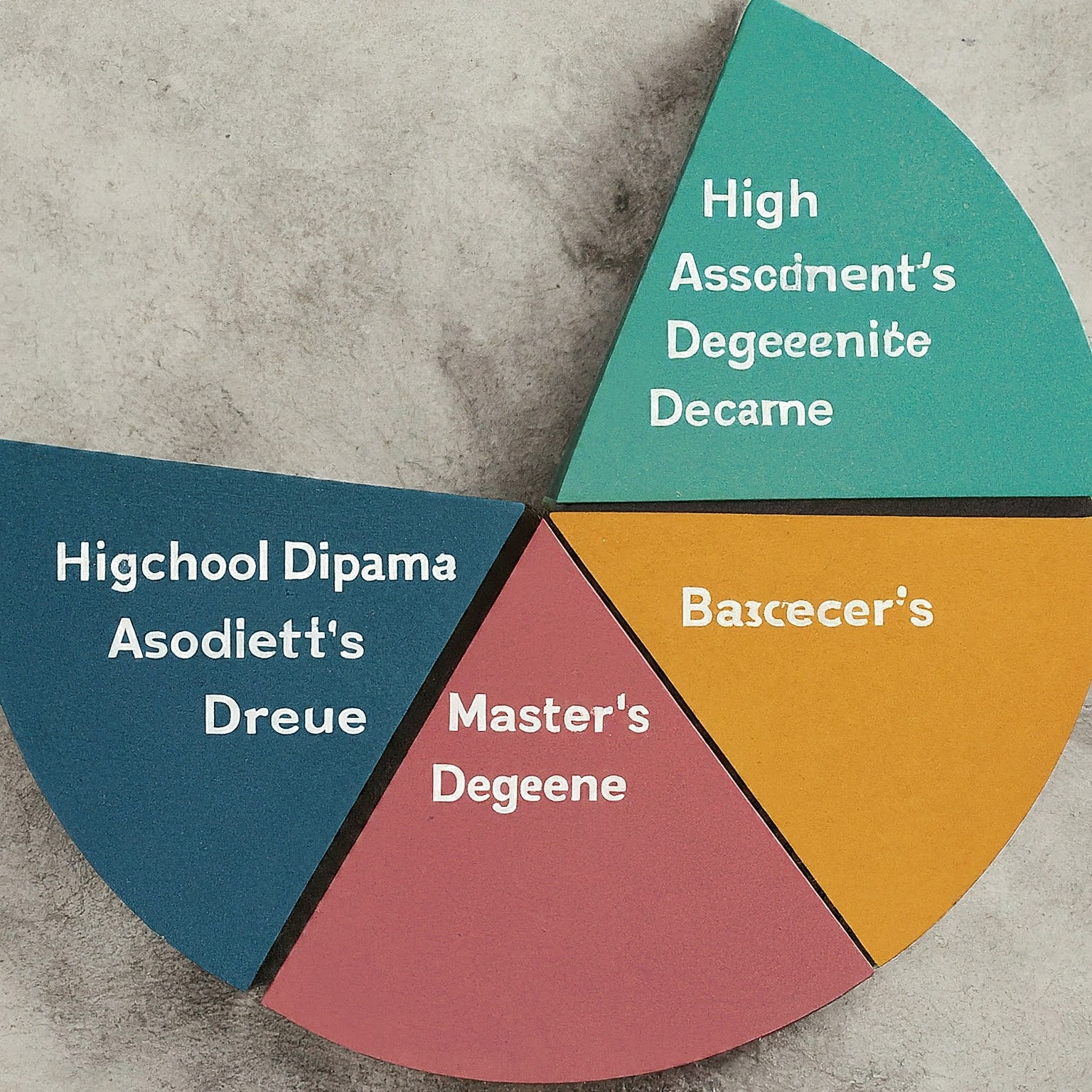Meet Dr. Amelia Moore!
Dr. Amelia Moore, a renowned career counselor with over 15 years of experience, dives deep into the connection between education and earning potential. In this informative article, Dr. Moore sheds light on the benefits of education, empowers young adults to make informed choices, and equips parents and educators with valuable guidance.
Decoding the Link: Education and Earning Potential
Imagine a graph with education levels on the X-axis and average earnings on the Y-axis. As the education level rises, so does the earning potential. This upward trend reflects a well-documented phenomenon – higher levels of education are statistically linked to higher salaries.
But why is this so? Let’s delve into the reasons:
-
Skill Development: Education equips you with valuable skills and knowledge coveted by employers. From critical thinking and problem-solving to communication and collaboration, educational programs hone your abilities, making you a more attractive candidate for high-paying jobs.
-
Job Qualification: Many careers require specific educational qualifications. For instance, becoming a doctor necessitates a medical degree, while an engineering role often demands an engineering background. Education unlocks doors to a wider range of professions with higher earning ceilings.
-
Signaling Effect: A degree or diploma serves as a signal to employers that you possess the dedication, perseverance, and necessary skills to succeed in a professional setting. It demonstrates your commitment to learning and your ability to complete long-term goals.

Unveiling the Numbers: A Data-Driven Look
The Bureau of Labor Statistics (BLS) provides compelling evidence of the education-earnings link. Their data consistently shows that individuals with higher educational attainment experience:
-
Lower Unemployment Rates: Statistics reveal a clear correlation between higher education levels and lower unemployment rates. This translates to greater job security and financial stability.
-
Increased Earning Potential: The BLS data showcases a significant rise in median earnings with each additional educational level. Investing in education can lead to a substantial financial return over your career lifetime.
Table 1: Education Level vs. Median Weekly Earnings (BLS 2024)
| Education Level | Median Weekly Earnings |
|---|---|
| High School Diploma Only | $790 |
| Associate’s Degree | $1,010 |
| Bachelor’s Degree | $1,300 |
| Master’s Degree | $1,670 |
Please note: These are national averages, and actual earnings can vary depending on factors like location, industry, and experience.
Empowering Young Adults: Charting Your Course
As a young adult, navigating the education and career landscape can feel overwhelming. Here are Dr. Moore’s top tips to empower you:
-
Explore Your Passions: What ignites your interest? Aligning your education with your passions allows for deeper engagement and sets you on a fulfilling career path.
-
Research Earning Potential: Consider the earning potential associated with different career paths. This information can guide your educational choices and future planning.
-
Invest in Continuous Learning: The world of work is constantly evolving. Embrace lifelong learning to stay ahead of the curve and maintain a competitive edge.
Equipping Parents and Educators: Fostering Success
Parents and educators play a crucial role in supporting young adults as they make educational decisions. Dr. Moore offers valuable guidance:
-
Open Communication: Foster open conversations about career aspirations and educational pathways. Guide young adults in exploring their options without imposing your own expectations.
-
Highlight the Benefits of Education: Discuss the link between education and earning potential, but emphasize the intrinsic value of learning and personal growth.
-
Champion Skill Development: Education is not just about grades. Encourage young adults to participate in activities that foster critical thinking, problem-solving, and teamwork – skills highly sought after in the workforce.
Conclusion: Education – An Investment in Your Future
Investing in education is an investment in your future. By equipping yourself with knowledge and skills, you unlock doors to higher-paying jobs, greater career satisfaction, and financial security. Embrace lifelong learning and empower yourself to achieve your full potential.












